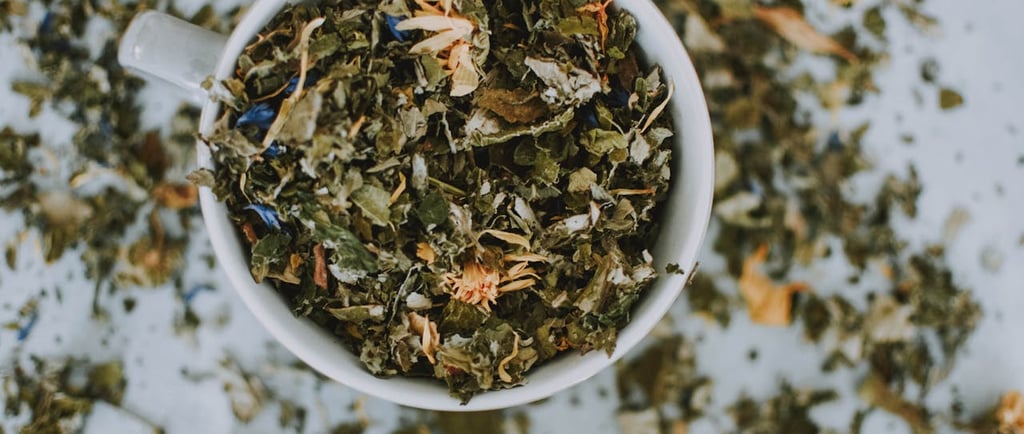Why Tea Might Be the Secret Ingredient Your Food Needs
Discover how tea polyphenols revolutionise food preservation and health. From snacks to drinks, explore their natural antioxidant power, extending freshness and boosting nutrition effortlessly!
TEA LIFE


Have you ever opened a packet of snacks or juice, and wondered, “How does this stay fresh for so long?” Or maybe you’ve thought, “Why can’t we make healthier foods without all the artificial stuff?” Well, here’s the deal: tea polyphenols might just be the game-changer you’ve been waiting for.
These natural compounds found in tea are showing up as the quiet heroes in food preservation. But what exactly makes them so special? Let’s dive in.
What Are Tea Polyphenols?
In simple terms, tea polyphenols are powerful antioxidants that come from tea leaves. Think of them as nature’s way of keeping things fresh and healthy. They’ve got antioxidant powers, can fight bacteria, and even help improve the quality of your favourite snacks, drinks, and more.
But here’s the kicker: tea polyphenols aren’t just about extending shelf life. They’re also sneaking in some health benefits while doing their thing.
How Tea Polyphenols Are Changing Food as We Know It
1. Keeping Snacks Fresh and Healthy
Ever noticed how some baked goods or fried snacks go bad quickly? That’s where tea polyphenols step in. They:
Prevent fats from going rancid in high-oil foods like cakes and fried snacks.
Can reduce harmful compounds like acrylamide that forms when starchy foods are cooked at high temperatures.
Even help manage fat accumulation, so your guilty pleasures might not feel so guilty anymore.
👉 Hot Take: Imagine snacking on a buttery croissant that doesn’t just taste amazing but also keeps you a step away from extra fat buildup.
2. Revolutionising Drinks
Whether it’s your morning soy milk or your afternoon fruit juice, tea polyphenols are doing the heavy lifting:
Eliminating unwanted odours like the beany smell in soy milk.
Preserving vitamins and antioxidants in fruit juices, even under heat and light exposure.
Stopping fermentation, so your drink doesn’t accidentally turn into wine.
3. Protecting Meat and Fish Products
Meat and seafood are notorious for spoiling quickly, but tea polyphenols can:
Stop fats and proteins from breaking down.
Enhance colour and keep that fresh look.
Even help build better texture in fish-based products, making them more enjoyable to eat.
4. Fighting Browning in Fruits and Veggies
You know how an apple turns brown once you cut it? Tea polyphenols work like magic here.
They block enzymes that cause browning.
Preserve the vibrant colours and natural flavours for longer.
This means fresher salads, better-looking fruit juices, and happier eaters all around.
5. Boosting Functional Foods
Tea polyphenols aren’t just preserving food; they’re making it healthier too:
Supporting gut health: Acting like prebiotics to feed your good bacteria.
Helping manage diabetes and obesity: By regulating glucose and fat metabolism.
Enhancing probiotics: Making sure the live bacteria in your yoghurt or supplements actually survive and thrive.
The Bottom Line
Tea polyphenols aren’t just a buzzword. They’re the quiet achievers, reshaping how we think about food preservation and health. From keeping your snacks crispy to making your drinks last longer (without weird additives), they’re proving that natural solutions can do it all.
Next time you bite into a cake or sip a juice, think about this: maybe the secret to better food isn’t in the lab, but in your cup of tea. And if you're using a Yixing Zisha teapot, you’re not just enjoying a cup of tea — you're experiencing a tradition that enhances both the flavour and health benefits, complementing the power of tea polyphenols in your diet.
FAQs
1. Are tea polyphenols safe to eat?
Yes, they’re natural and have been consumed for centuries through tea. Some advanced forms need further testing, but the basics are safe.
2. Can tea polyphenols change the taste of food?
Sometimes. While they can mask unpleasant odours or bitterness in some cases, too much might add a slight astringency. But researchers are working on balancing this.
3. Are they better than artificial preservatives?
In many ways, yes! Tea polyphenols are natural, offer health benefits, and don’t have the same risks as artificial chemicals.
